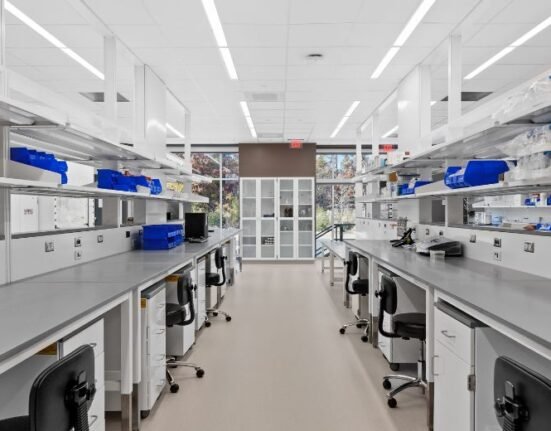HQ Team
November 1, 2022: Verge Genomics, backed by Eli Lilly and Merck & Co., announced it had dosed a human during clinical trials with a drug discovered and developed using artificial intelligence (AI).
The San Francisco-based company dosed the first patient with a therapy named VRG50635 for the treatment of amyotrophic lateral sclerosis (ALS), according to a company statement.
The AI platform has uncovered “PIKfyve” as a promising new therapeutic target. iPIKfyve is an enzyme thought to trigger the ALS disease process initially.
The VRG50635 is a small molecule inhibitor of PIKfyve. An enzyme inhibitor is a molecule that binds to an enzyme and blocks its activity.
Through the evaluation of more than 11.4 million data points from ALS patient tissue and genetics datasets, the company’s AI-based platform discovered loss of endolysosomal function as a new cause for the disease.
Cell life, death
Endolysosomes are involved in cellular processes, including the catabolism of extracellular and intracellular components. It is also involved in immune responses, antigen presentation, cell secretions, and cell life and death.
Enzymes are proteins that speed up chemical reactions necessary for life, in which substrate molecules are converted into products. In preclinical studies, VRG50635 has slowed the degeneration of neurons.
“For years, researchers have heavily relied on animal or cell models to identify new targets in a way that oversimplifies the enormous complexity of human biology, particularly for diseases like ALS,” said Robert H. Scannevin, PhD, Chief Scientific Officer at Verge Genomics.
The company’s AI-based platform integrates human data and human model systems throughout discovery and development.
Predict drug tests
The process provides insights into ALS’s biological underpinnings and predicts drug targets, like PIKfyve, that can broadly impact these complex, disease-relevant processes, according to the statement.
VRG50635 restores endolysosomal function in ALS patients’ neurons and has shown efficacy in multiple preclinical studies in ALS-relevant models of motor neuron degeneration.
ALS, also known as Lou Gehrig’s disease, is a progressive neurodegenerative disease that affects neuronal cells in the brain and spinal cord.
This first-in-human study will evaluate the safety, tolerability, and pharmacokinetics. Further, it will look into the pharmacodynamics of VRG50635 in healthy volunteer subjects and multiple-dose study patients with ALS.
‘Disciplined execution’
“We are proud to be not just one of the few AI-driven biotech companies to have made it to the clinical stage but also one of the first to bring forward a novel clinical compound against a novel target that was entirely discovered and developed internally on our platform,” said Alice Zhang, CEO of Verge Genomics.
“Advancing VRG50635 from research to clinic in just four years offers clear proof of our team’s commitment to disciplined execution and is a leading indicator of the potential efficiency gains from tech-enabled drug discovery.
“This is just the start of our plan to develop a robust clinical pipeline of new medicines demonstrating that a human-to-human rather than an animal-to-human approach has the potential to transform clinical success rates,” she said.
Verge received $32 million in the first round of funding in 2018. It received another $98 million in the second round last year.








